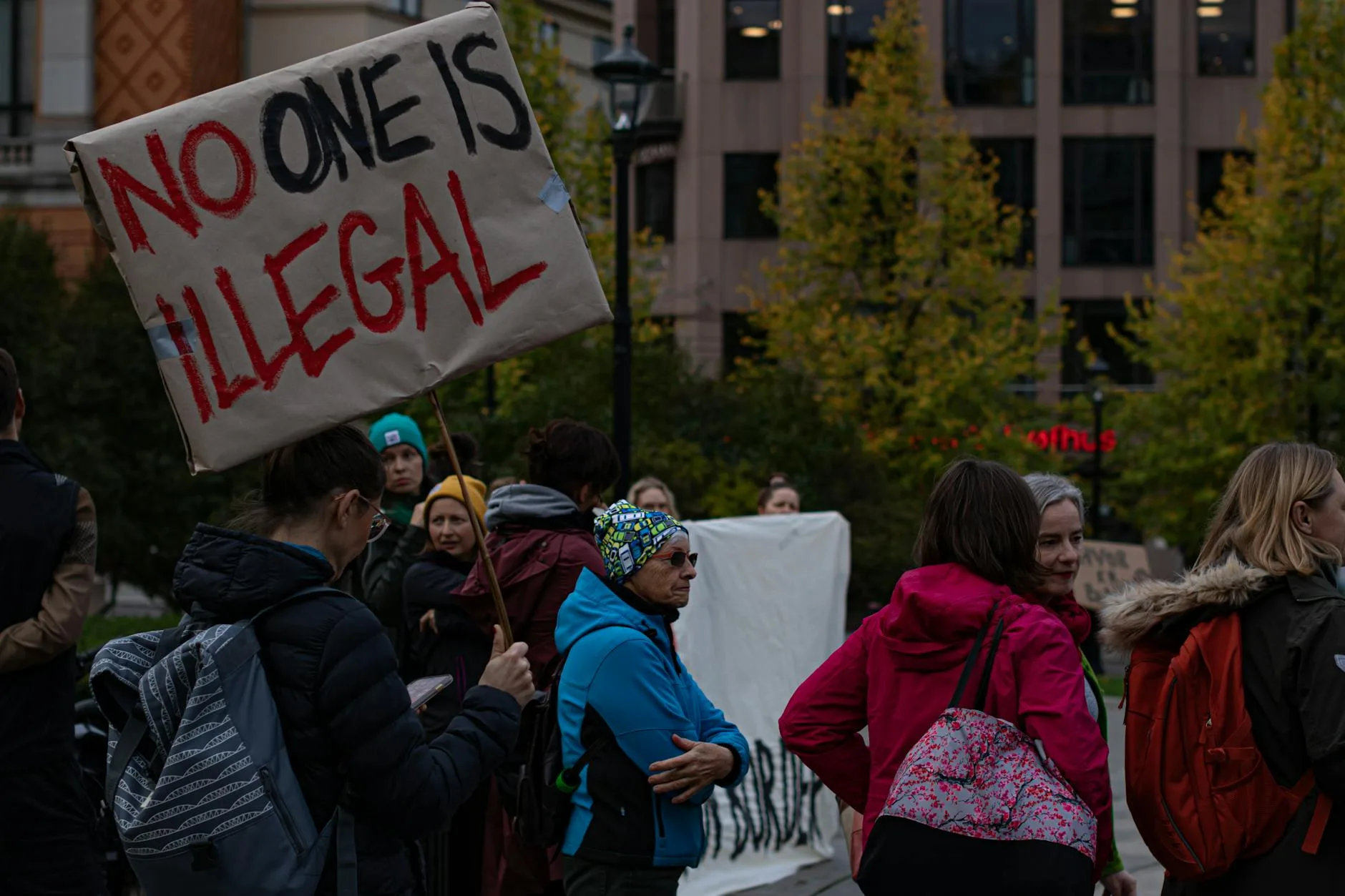Navigating Uncertainty as Enforcement Powers Shift
Recent actions by the U.S. Supreme Court have created a climate of anxiety for immigrant communities in Los Angeles, particularly following a decision that allows for the resumption of certain immigration enforcement operations. This development reopens the door to past practices that critics have described as indiscriminate and that previously led to widespread arrests and protests. The ruling has left many residents questioning their safety and future, sparking concerns about the potential for increased fear and disruption. Understanding the specifics of this decision, its historical context, and its potential ramifications is crucial for individuals and families navigating this evolving landscape.
Understanding the Supreme Court’s Decision and Its Immediate Impact
The Supreme Court’s recent order permits the continuation of immigration raids, a practice that had been temporarily halted. This decision, while not entirely preventing immigration enforcement, removes a significant legal barrier that had been in place. Critics, such as those cited in reports following similar past actions, have expressed deep concern that these operations can lead to the apprehension of individuals who may have no criminal record, solely based on their immigration status. The immediate impact is a renewed sense of vulnerability for immigrant populations, who may fear increased scrutiny and enforcement actions in their daily lives.
Historical Context: Past Raids and Community Reactions
This latest ruling evokes memories of previous large-scale immigration raids conducted in the Los Angeles area and other parts of the country. For instance, in 2007, a significant raid in Los Angeles resulted in hundreds of arrests, causing widespread fear and disrupting families and workplaces. These operations often led to protests and outcry from immigrant rights advocates who highlighted the human cost of such enforcement, including family separations and the economic impact on communities. The fear of such events recurring is a significant factor contributing to the current anxiety.
Perspectives on Immigration Enforcement: Security vs. Civil Liberties
The debate surrounding immigration enforcement is complex, involving competing priorities. Proponents of robust enforcement often emphasize national security and the rule of law, arguing that controlled borders and adherence to immigration laws are essential for a stable society. They may view the Supreme Court’s decision as a necessary step to uphold these principles and deter illegal immigration.
Conversely, immigrant rights organizations and many community members argue that indiscriminate raids can erode trust between law enforcement and immigrant populations, making it harder to report crimes and access essential services. They point to potential human rights concerns and the disproportionate impact on families and children. Reports from advocacy groups have consistently highlighted instances where individuals with strong community ties and no criminal history were detained. The legal reasoning behind the Supreme Court’s decision is rooted in specific interpretations of immigration law and procedural rights, which are often the subject of intense legal and political debate.
Tradeoffs in Immigration Enforcement Strategy
The decision to allow raids to resume presents a clear tradeoff between different approaches to immigration policy. On one hand, it may signal a more assertive stance on immigration enforcement, potentially deterring irregular migration. On the other hand, it carries the risk of increased community fear, potential disruption to local economies due to workforce anxieties, and the burden on social services that may arise from increased detentions and deportations. The effectiveness of such raids in achieving long-term immigration goals is also a subject of ongoing discussion among policy experts.
Implications for Los Angeles Immigrant Communities: What to Watch
The resumption of immigration raids has several key implications for Los Angeles. Residents may experience increased anxiety and a reluctance to engage with authorities, even as witnesses to crimes. This could impact public safety efforts. Businesses that rely on immigrant labor may also face disruptions. Furthermore, the ruling could influence the political discourse around immigration reform and resource allocation for enforcement agencies. It is crucial to monitor how these enforcement actions are implemented in practice, observing patterns of targeting and the types of individuals apprehended.
Navigating Uncertainty: Practical Advice for Immigrant Families
In light of the Supreme Court’s decision, immigrant families in Los Angeles are advised to stay informed about their rights and available resources. Organizations such as the American Civil Liberties Union (ACLU) and various immigrant legal aid services offer guidance on what to do if encountered by immigration enforcement. It is recommended to:
* **Know Your Rights:** Understand that individuals generally have the right to remain silent and do not have to consent to searches of their home or person without a warrant.
* **Seek Legal Counsel:** If facing potential detention or deportation, consulting with an immigration attorney is vital.
* **Stay Informed:** Follow news from reputable sources and immigrant advocacy groups for updates on enforcement activities and legal developments.
* **Community Support:** Connect with community organizations that can offer support and information.
Key Takeaways
* The Supreme Court has allowed for the resumption of certain immigration raids.
* This decision has generated significant concern and anxiety within immigrant communities in Los Angeles.
* Past raids have led to widespread arrests and community protests.
* The debate centers on balancing national security with civil liberties and human rights.
* Immigrant families are encouraged to be informed about their rights and available legal resources.
Stay Informed and Connected
For the latest information and resources regarding immigration law and enforcement, consider following updates from official government sources such as the Department of Homeland Security (DHS) and U.S. Citizenship and Immigration Services (USCIS), as well as reputable immigrant advocacy organizations.
References
* Department of Homeland Security (DHS) – Official source for information on U.S. immigration policy and enforcement.
* U.S. Citizenship and Immigration Services (USCIS) – Provides information on immigration benefits, services, and laws.
* American Civil Liberties Union (ACLU) – Offers resources and information on immigrants’ rights.
* National Immigration Law Center (NILC) – Advocates for the rights of low-income immigrants and provides legal information.


